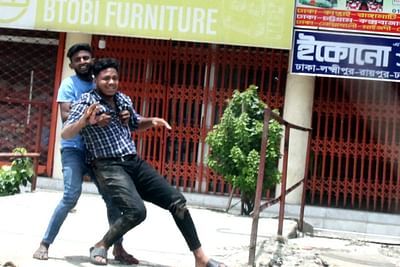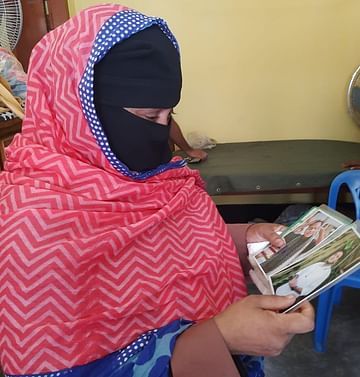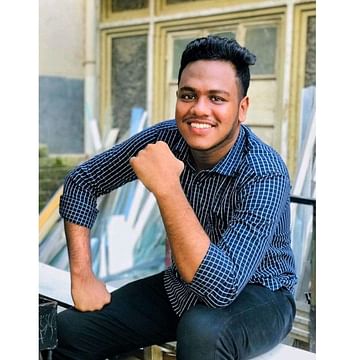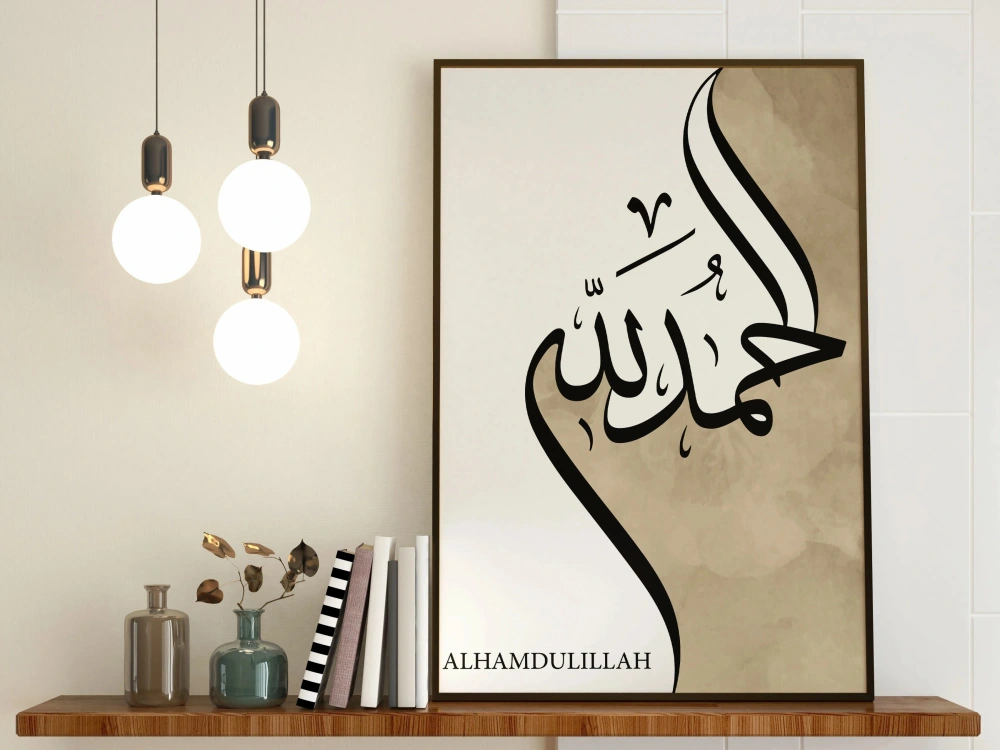In a video that has circulated widely on Facebook, it is evident that a friend attempted to pull Imam Hasan Bhuiyan Taim to safety as police opened fire.
“The son of a police officer was killed by police bullets. Is this the reward my husband deserved? How many bullets did they fire at my son? He wasn’t a criminal or a thief. Did the shooter feel no pity? How many bullets does it take to kill? …I demand justice.” These were the anguished words of Parveen Akter, the mother of 19-year-old Imam Hasan Bhuiyan Taim.

Imam Hasan, the son of Senior Sub-Inspector Md. Moynal Hossain Bhuiyan of the Rajarbagh Police Lines, was fatally shot near the Kazla pedestrian bridge in Jatrabari on July 20 during a police crackdown on protests demanding reforms to the government job quota system.
Moynal Hossain, who has served in the police force for 27 years, has been mentally devastated since his son’s death and declined to speak directly with Prothom Alo. Imam Hasan was a 12th-grade student at Government Adamjee Nagar MW College in Narayanganj.
Overcome by grief, the family has recently relocated from their rented home in Purbo Rasulpur, opposite the Kazla pedestrian bridge, to a new residence in Madartek under Sabujbagh Police Station. Last Friday, Imam Hasan’s mother, his elder brother Robiul Awal (a student at Sylhet Agricultural University), and his aunt Shahida Akter spoke with Prothom Alo at their new home. Another brother, Zahid Hasan, is currently studying at Moscow Science and Technology University.
The government had imposed a nationwide curfew starting July 19, which was temporarily lifted from 12:00 PM to 2:00 PM on July 20. As protests raged in Jatrabari, Imam Hasan joined the demonstrations. His mother, fearing for his safety, spent three to four days sitting on the sidewalk or in a safe location, clutching his bag.

On the day of the incident, shortly after noon, Imam Hasan went with friends to Liton Store near the pedestrian bridge to have tea. Before leaving home, he had asked his mother for some bread. The two pieces of bread and curry he had were his last meal.
Parveen Akter recounted that within half an hour of her son leaving, she received news that he had been shot. Despite the proximity of the incident to their home, by the time she arrived, she found only bloodstains—her son’s body was gone. She was informed of his death later that night.
Parveen Akter has since viewed the video footage circulated on social media, showing the police shooting her son at close range while a friend tried to pull him away. At one point, realizing he could do nothing, the friend let go and ran, while the police continued to fire. Imam Hasan was still alive at that time.
The autopsy report on Imam Hasan documented multiple injuries: “Four wounds below the elbow on the right arm extending to the wrist…approximately 100 black wounds and lacerations from head to toe…”
In the section of the report regarding the probable cause of death, the investigating officer noted, based on the father’s statement, that the victim had been beaten and shot by participants in the quota reform protests.
However, in a phone conversation with Prothom Alo, Moynal Hossain clarified that those responsible for the report had written it according to their own preferences. He was informed that direct mention of gunfire was prohibited; instead, the injuries were to be described as “wounds” based on instructions from higher authorities.
An article in The Daily Star reports that on July 20, after finding his son’s body at the morgue, Moynal Hossain asked a superior officer over the phone, “How many bullets does it take to kill a person, sir?”
Preparing for Legal Action
Imam Hasan’s elder brother, Robiul Awal, told Prothom Alo, “After obtaining the video footage, we realized that the officer who fired the shots had repeatedly contacted our father for various information. We have approached senior police officials with our father. Although they expressed sympathy, they did not advise us on legal recourse. Instead, they suggested that there was no need for our father to take any action, as the police would file the case themselves.”
Robiul Awal mentioned that the family is now preparing to pursue legal action to seek justice for his brother’s murder. “My grandfather Abdul Kader Bhuiyan served in the police, my uncle Zainal Abedin was in the army, and my father is currently serving in the police. My brother Imam Hasan also aspired to join the police. We demand justice for those responsible for his killing.”










